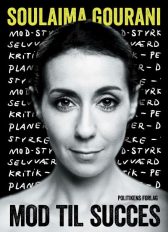The Future of Work; Skills 4.0
Today’s technological revolution is an entirely different beast from the industrial revolution. The pace of change is exponentially faster and far wider in scope! Want to know much more? For more than ten years I have been speaking and writing how trends ...
Today’s technological revolution is an entirely different beast from the industrial revolution. The pace of change is exponentially faster and far wider in scope! Want to know much more? For more than ten years I have been speaking and writing how trends and tendencies impact your job and your industry. Understand the future of work by booking Soulaima Gourani reporting from the heart of Silicon Valley, Palo Alto.
Today we have an opportunity to shape the fourth industrial revolution, which will fundamentally alter how we live and work. Proff. Schwab (Founder of World Economic Forum) argues that this revolution is different in scale, scope and complexity from any that have come before. Characterized by a range of new technologies that are fusing the physical, digital and biological worlds, the developments are affecting all disciplines, economies, industries and governments, and even challenging ideas about what it means to be human.
It is hard to imagine a time before the Internet; before Google, YouTube and Netflix. Gen-Z can’t wrap their heads around the fact we had to fax or send documents by snail mail to get them signed. Gen Z can’t relate to having to go out to physical stores to buy Christmas presents, or that we couldn’t see the other people on the other end of the phone when we called them (or that you couldn’t call for “free,” for that matter). They’re growing up with Dropbox, Uber, Facebook, FaceTime, HelloSign and Amazon. Our kids experience a world where everything can be done online and orders are brought straight to our front door, often within the hour. They experience the world at a fast and practical rate – more or less free of waiting periods. This will affect them and their view of what the future can bring.
However, in the workplace, we’ll see the introduction of a range of new hybrids and ways of working, not to mention a fundamental shift in what it means to have a so-called “job.” The offices of Google, Facebook and a lot of new tech start-ups are set up to ensure that you never need to leave “your job.”
You can live your entire life on the premises. You can bring your dog to work, swim, exercise and eat free food cooked by some of the world’s best chefs. You can get blood tests and haircuts on-site, invite your family for free dinners, take iPads, new phone batteries, chargers, laptops or mobile phones out of vending machines as if they were soft drinks; free of charge. You have everything you could possibly need, but why do they pamper their employees like that? The answer is simple: To recruit and retain the best talent.
Some people and companies get borderline aggressive when someone mentions that in lots of jobs and industries, people will soon become redundant. It may be difficult to accept, but that doesn’t change the fact that it will happen and we won’t be able to keep hiding behind trade unions when work becomes borderless—and being borderless is the defining characteristic of digital work! Technology can and will automate many of the jobs in the current market. To some extent, most of us will be affected by the future within the next 3-5 years.
Technology can and will help you make faster and better decisions, but you probably wouldn’t leave the critical thinking to technology. Your future will depend on your ability to think—and on your common sense because computers don’t have that. Realistically, we are headed straight for a digital talent drought, and experts predict that more than 30% of so-called “tech jobs” will be unfilled by 2020. What can we expect from our work life and collaboration in the future, when there will be not just five, but upwards of seven generations in the workforce?
Researchers like Nick Bostrom estimate that computers and technology will be smarter than people by 2050.
Only a minuscule number of jobs will remain that require human input. For humans to keep up, we have to figure out how to optimize not only our IQ (traditional intelligence) and EQ (emotional intelligence), but also our GQ (global intelligence) and DQ (digital intelligence). These four intelligences are the framework for your readiness in the future.
There are no jobs on the market that have zero connection to IT and technology. We live in a linear society, where everyone is expected to fit into boxes:
- Employed or unemployed
- Full-time or part-time
- In good health or on sick leave
- Public employee, private employee, or self-employed
Even the majority of people today have no idea what it will take to make a living ten years down the line. In one of his innumerable speeches, Bill Gates, the founder of Microsoft, claims that the next 15 years will be indescribable and unfathomable and that innovation in the healthcare, banking, financial, agricultural and educational sectors will revolutionize the way we live and work. Whether there’s a market for your skill set in the future is something you should dedicate resources to finding out. If you really want to know what the future holds, then follow the money.
One way to gauge the future is by looking at what investors are investing in. Innovative and responsible organizations do their part to help fight the challenges presented by climate change, increase security, prevent disease and cure people. These companies are jumping into action, and that is what will affect our lives, our jobs and our futures. This will require strategic thinking. Strategic thinking involves imagining what could happen in the future and applying your theories to the current circumstances. That might sound like a difficult practice, especially if you’re a bit stuck in terms of imagining the future, what you can do, and what you can “become,” but with the right techniques, anyone can improve their ability to think this way for better success.
The world continues to be an interesting and dynamic place, but your ability to keep up and prevent yourself from becoming the loser of the future depends on your ability to spot the tendencies affecting your job and industry—and on whether you have the courage to act on that knowledge.


